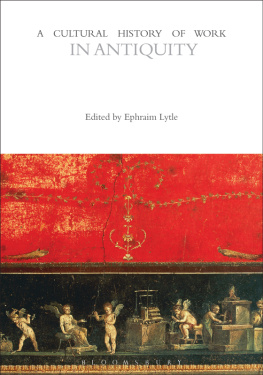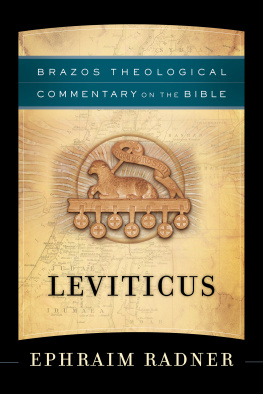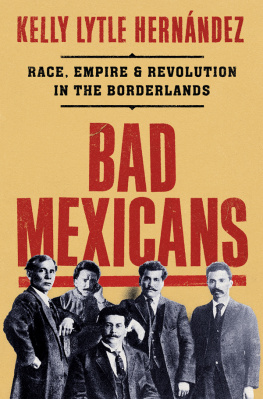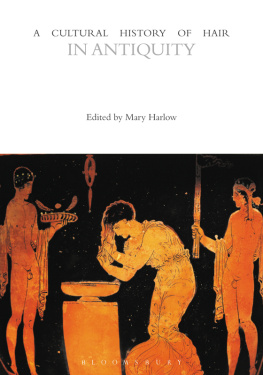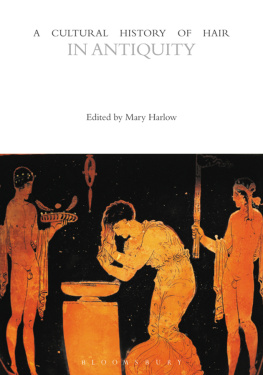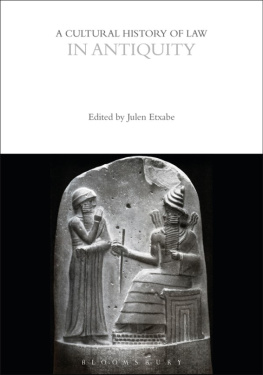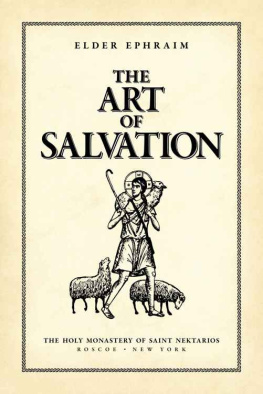A CULTURAL HISTORY
OF WORK
Volume 1
A Cultural History of Work
General Editors: Deborah Simonton and Anne Montenach
Volume 1
A Cultural History of Work in Antiquity
Edited by Ephraim Lytle
Volume 2
A Cultural History of Work in the Medieval Age
Edited by Valerie L. Garver
Volume 3
A Cultural History of Work in the Early Modern Age
Edited by Bert De Munck and Thomas Max Safley
Volume 4
A Cultural History of Work in the Age of Enlightenment
Edited by Deborah Simonton and Anne Montenach
Volume 5
A Cultural History of Work in the Age of Empire
Edited by Victoria E. Thompson
Volume 6
A Cultural History of Work in the Modern Age
Edited by Daniel J. Walkowitz
A CULTURAL HISTORY
OF WORK
IN ANTIQUITY
Edited by Ephraim Lytle
INTRODUCTION
CHAPTER ONE
CHAPTER TWO
CHAPTER THREE
CHAPTER FOUR
CHAPTER FIVE
CHAPTER SIX
CHAPTER SEVEN
CHAPTER EIGHT
CHAPTER NINE
Ben Akrigg is Associate Professor of Classics at the University of Toronto, Canada. His principal area of research is the historical demography and economic history of Archaic and Classical Greece.
Seth Bernard is Assistant Professor of Classics at the University of Toronto, Canada. His research focuses broadly on the socioeconomic and urban history of Rome and Italy, and his current book project looks at how Romes labor supply met the demands of large-scale public construction during the Mid-Republican period.
Sarah E. Bond is Assistant Professor of Classics at the University of Iowa, USA. She specializes in Roman law, late antique epigraphy, and trade associations. She is the author of Trade and Taboo: Disreputable Professions in the Roman Mediterranean (2016).
Alain Bresson is Robert O. Anderson Distinguished Service Professor of Classics and History at the University of Chicago, IL, USA. He has published widely on topics related to the ancient economy. He is author of The Making of the Ancient Greek Economy: Institutions, Markets, and Growth in the City-States (2016).
Miko Flohr is Lecturer in Ancient History at Leiden University, the Netherlands. His research interests include urbanism, economic life, and textile production in the Roman world. He is author of The World of the Fullo: Work, Economy, and Society in Roman Italy (2013) and currently writing a monograph on the Roman taberna.
Ephraim Lytle is Associate Professor of Classics at the University of Toronto, Canada. His research focuses on Greek social and economic history. He is especially interested in social classes and economic activities, such as fishermen and fishing, often considered peripheral to the polis and its ideological focus on the citizen farmer.
Zinon Papakonstantinou is Associate Professor of Classics at the University of Illinois at Chicago, IL, USA. He has published over forty articles and chapters on ancient Greek sport, leisure, magic, and law; edited two volumes on the cultural history of sport in Antiquity; and is the author of Lawmaking and Adjudication in Archaic Greece (2008).
Philip Sapirstein is Assistant Professor of Art History at the University of NebraskaLincoln, USA. An archaeologist by training, his primary research interests center on Greek architecture, ancient pottery production, the economics of ancient labor, and the utilization of advanced digital technologies for archaeological analysis and visualization.
Koenraad Verboven is Professor of Ancient History at Ghent University, Belgium. He has published widely on social and economic history and has recently coedited three volumes related to Roman economic history, including (with Christian Laes) Work, Labour, and Professions in the Roman World (2016).
Issues around work and the workplace seem to be having a renaissance and are no longer embedded solely in the discourses around Marxism and labor movements. Similarly, new and fresh research has been taking place around guilds, skill, control, and gender issues. A Cultural History of Work takes an approach that focuses on culture in order to explore the subtleties of the character and dynamics of work and the people and relationships involved in working and the workplace in a theoretically holistic way to bring together disparate historical traditions and historiographical approaches. The aim and scope of A Cultural History of Work is to offer a comprehensive survey of the social and cultural construction of work across six historical periods. This approach that focuses on the cultural history of work provides an opportunity to explore the dynamics of work and the people and relationships involved in working and the workplace, helping to rethink boundaries and the issues of work. This is not an economic history of work, but a cultural one. Of course, we talk about economics, but the fundamental concept is to explain the ways in which work was situated in and influenced cultural dynamics of the western world. It is a key contribution to the process of rethinking boundaries and issues of work.
A Cultural History of Work draws on the western world. Contributors approached their chapters with a great deal of freedom, drawing on their specific expertise in national and regional histories, but throughout the thirty-six chapters that make up the series, they have tried to embrace the West. The series does not intend to cover all of western culture, or even all of Europe and North America. Authors instead have aimed at representing the broad trends and nuances of the culture of work from antiquity to the present. Thus A Cultural History of Work concentrates on the central themes in western work, with some sensitivity to areas we know less about.
This is a work of scholarly reference designed to provide scholars and students with a detailed, nuanced overview. Each contribution has been written as an original chapter presenting an overview of a theme in a period, but each also includes a wide range of case material and has a particular thrust or point of view (or points of view) informing the organization of the piece. The series is structured into six time periodsthough historians will always quibble about what these periods mean and will blur the edges. That is part of the process of understanding the past. And time does not have the same meaning across regions, much less countries or continents. Each volume covers a long period of time and a broad geography that can and will introduce a range of variables. Each volume uses the same chapter titles so that readers can read on a theme across volumes, or read through a period exploring the range of themes and nuances that each volume presents. There are also overlaps within volumes and across them that enrich the discussion.
The editorial decision to study work rather than labor is suggestive of a broader, more encompassing field of study that lends itself more readily to different periods. For example, in particular it is more appropriate to use work for periods such as antiquity and the Middle Ages because labor looks in one sense as an eighteenth- or nineteenth-century concept. English is rather unusual in having two words whose meanings overlap considerably, but are not identical. For example, there is only one word in French,



